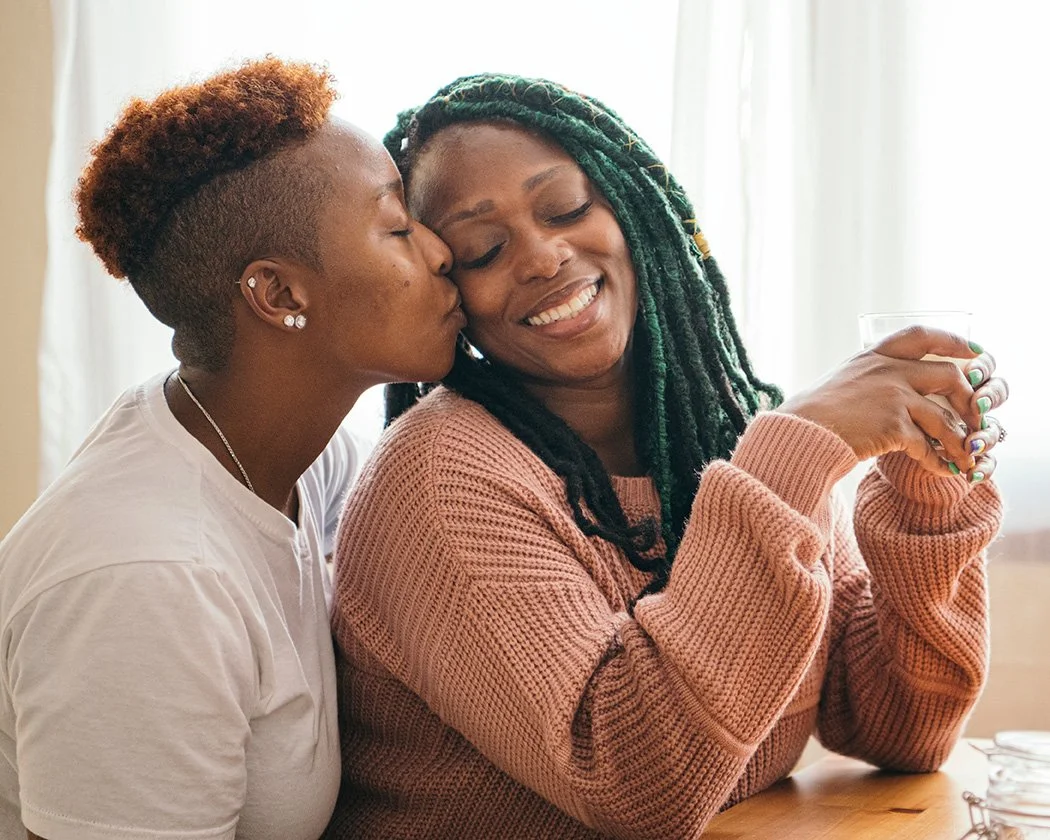The roadmap to healthy relationships
Fewer things in life are as important and impactful as the connections we build with others. The quality of our relationships, be they with friends, family or a significant other, plays a profound role in our overall well-being. Positive relationships can add a lot of joy and meaning to our lives and impact both our physical and mental health.
But relationships can be complex and sometimes it can be difficult to recognize unhealthy behaviours. Unhealthy actions and dynamics can gradually embed themselves and become normalized over time, making it difficult to identify them as problematic. It's important to take a step back and assess your relationship with a critical eye. Sometimes, what seems normal may not be healthy in the long run.
What makes a healthy relationship?
A healthy relationship is characterized by open communication, mutual respect, and trust, where both people involved feel free to share their thoughts and feelings. It's all about listening, understanding, and supporting each other.
In these relationships, there's a good balance of give and take, where there is consideration for each other's needs and desires. Personal growth is encouraged, and there's a strong foundation of trust built on honesty and reliability. When conflicts come up, the focus is not on who can "win" but in finding solutions that work for both. It's a comforting space where you can be yourself, and together, you create a supportive environment that adds positivity and joy to both of your lives.
The importance of open communication and respect
Building solid, healthy relationships takes effort and a commitment to grow together, with communication being the bedrock. In a healthy relationship, partners actively listen, express themselves honestly, and work together to resolve conflicts. Mutual respect forms the foundation, with each person valuing the other’s opinions and feelings.
Now, when it comes to unhealthy relationships, communication can break down, leading to lots of misunderstandings and negative feelings. But if you make open communication a priority, you're setting the stage for a connection based on trust and understanding. If you and your partner are having frequent arguments, conversations are tense, or you’re just not talking very much at all, it could be a sign that your relationship might need some help.
Setting boundaries
Clear boundaries in a relationship are a way of showing respect for yourself and each other. In a healthy relationship, you feel empowered to communicate your needs and limitations without fear of judgment.
On the flip side, unhealthy relationships often struggle with the concept of boundaries. Overstepping limits and attempts at control can lead to feeling constricted or suffocated and lead to resentment. Addressing these concerns requires open communication and a commitment to respecting each other's needs.
Trust and honesty
Think of trust as the glue that holds a strong relationship together. Partners depend on each other, and there's a sense of security in the belief that the other person is honest and reliable.
Unhealthy relationships often suffer from trust issues, where dishonesty or past betrayals can disrupt the entire connection. Nurturing trust involves openness and addressing issues as soon as they emerge in the relationship. Rebuilding trust can be challenging but it is essential for the well-being of the relationship.
Spending quality time together
In strong relationships, couples dedicate quality time to each other. Quality time is not just about doing things together or being the same physical space, but rather about engaging in activities that deepen the connection. This means focusing on each other, actively listening to one another and being genuinely interested in each other’s thoughts and feelings. Investing time together will only strengthen the bond between you and your partner.
In unhealthy relationships, you might overlook this investment of time and attention, which leads to the emotional distance between you and your partner to grow. Building a foundation of shared quality time happens when both you and your partner actively participate in each other's lives.
Supporting each other's growth
In healthy relationships, there's room for growth as individual people. It’s an environment where both you and your partner can thrive, exploring your own interests and goals. When each person in a relationship grows, the connection between you and your partner also grows. It's a place to celebrate each other's victories and be there for support when things get tough.
In an unhealthy relationship you don’t feel encouraged or safe to express your individuality or focus on what you want and need.
Regular relationship check-ins
Make it a habit to have regular check-ins to assess how your relationship is doing. Discuss concerns, express gratitude, and make sure both of you feel listened to and appreciated.
Unhealthy relationships may neglect these check-ins, letting problems hang around. Keeping communication open is crucial to addressing challenges and nurturing a strong connection.
Every relationship has its highs and lows, and it requires effort, commitment, and a readiness to go through life challenges together. Whether your relationship is in its early stages, or you've been together for years, there are actions you can take to foster a healthy connection. Remember, in a healthy relationship, you always feel safe expressing your thoughts and feelings. By recognizing the initial signs of unhealthy relationships, you can address them early on.
If you're worried that you might be in an unhealthy relationship, don't hesitate to seek help to navigate through any issues you may be facing.
Information for this blog was provided by registered social worker, Stefan De Villiers. Learn more about our counsellors. Check out the Men’s Mental Health Mini-Series on the Living Fully podcast.






